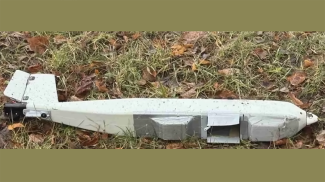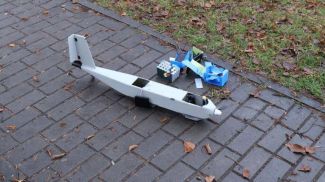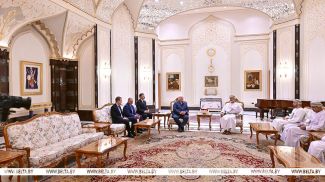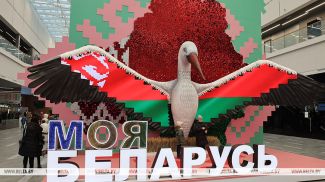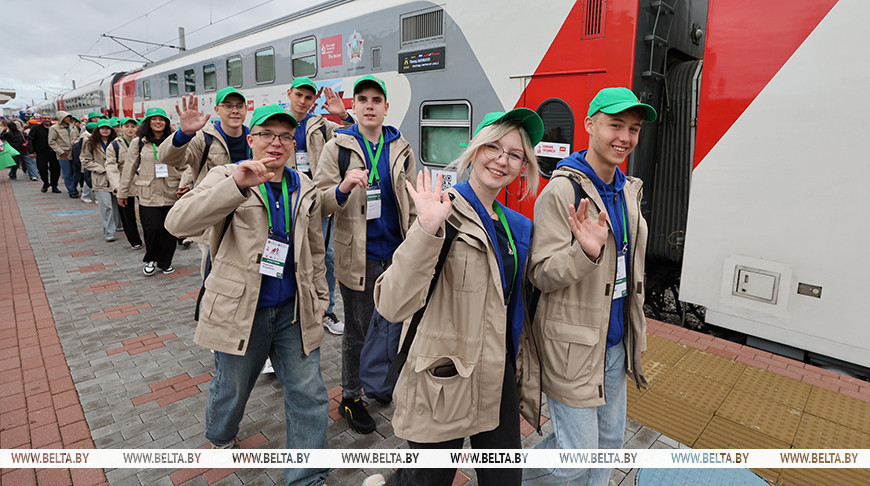
MINSK, 24 June (BelTA) - Train of Memory arrived in Minsk on 24 June, BelTA learned.
It carries 200 young people, descendants of the soldiers-victors, representatives of the nations of the former Soviet Union, who won the Victory over Nazism in 1945. For them this is not just a journey, but a symbol of the common history and continuity of generations. The first stop of the route was Brest, where guests got in touch with the glorious history of the hero city. Then it was Grodno, and now Minsk.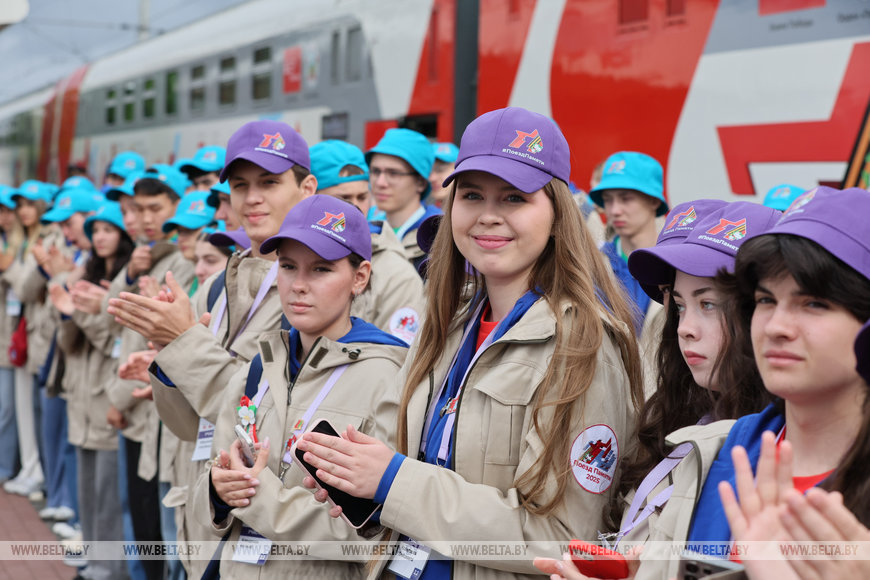
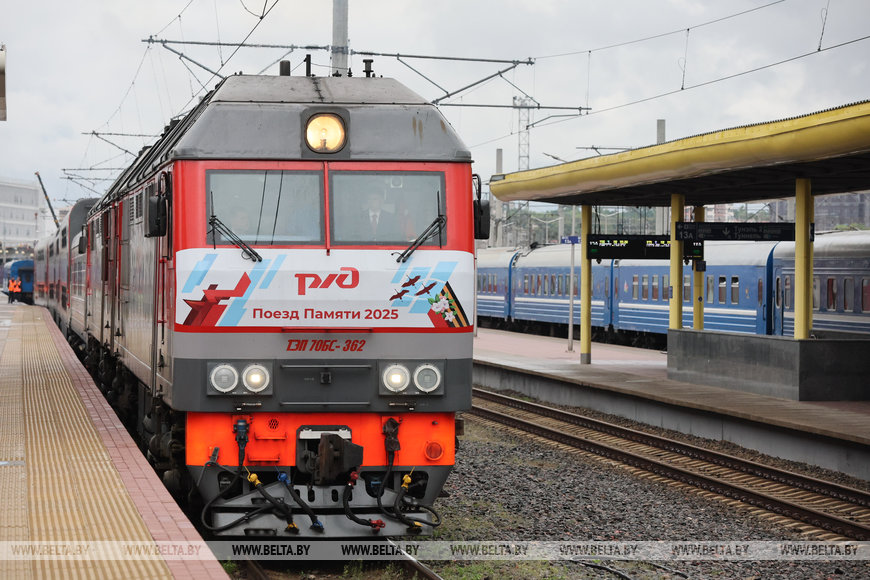
She added that she made many new friends from Kazakhstan, Russia and Belarus. “We have all become very good friends. We have shared the stories and traditions of our countries,” she said. “And that's the most valuable thing about this trip. It is in this way that we create an understanding of the importance of friendship, peace and memory.”
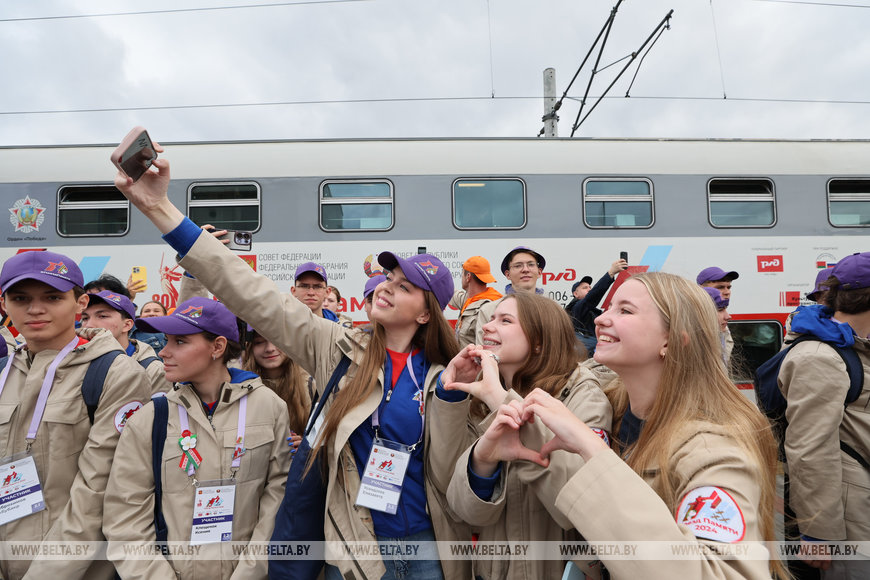
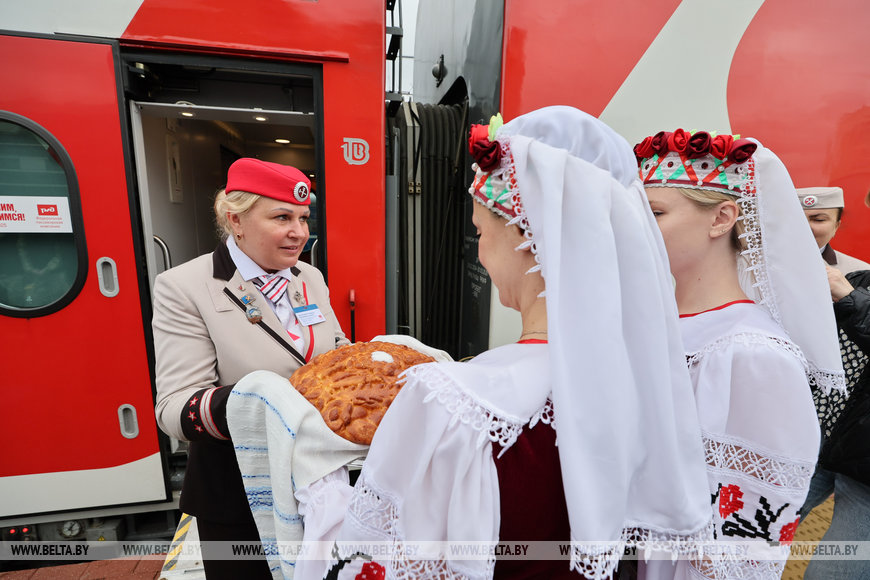
The organizers note that the program is as rich and diverse as possible. It takes young people to the memorable places of military glory and culture and promotes their friendly communication. Every morning begins with a simple but touching gesture - greetings in native languages. Every day brings new meetings, communication and exchange of traditions. Boys and girls share stories about the customs and culture of their peoples. So the train turns into a moving bridge that connects not only cities, but also hearts, turning the history into a living memory for a new generation.
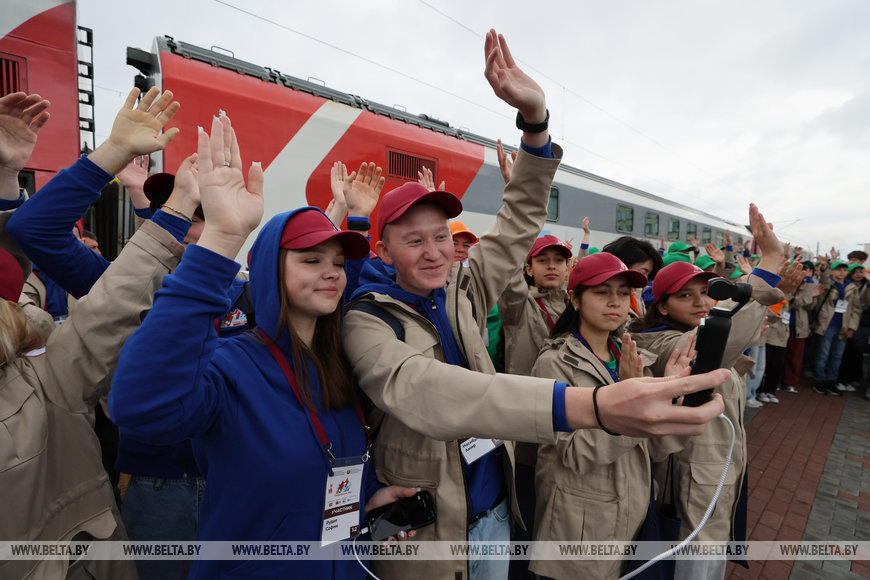
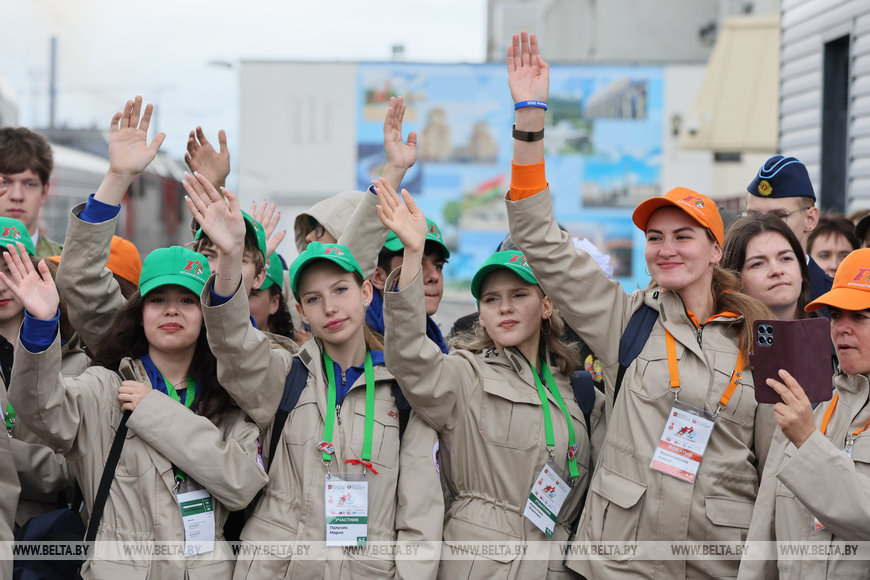

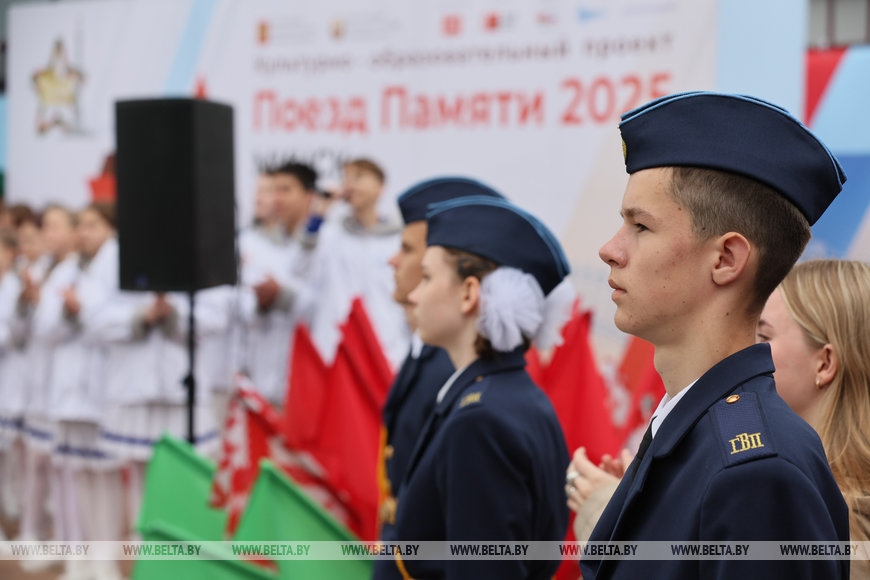
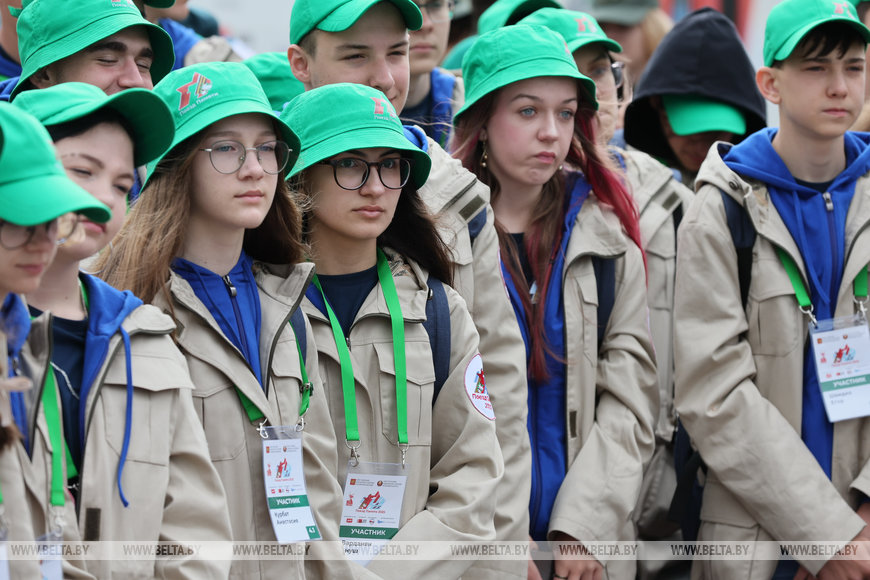
According to Andrei Strigelsky, an important part of the program will be a commemorative rally and a ceremony of laying flowers at the Victory Monument.
The vice mayor stressed that the communication of young people from different countries is what makes the project special. “For the younger generation, communication is very important. Once we were part of the Soviet Union, and we really need to preserve the common memory – the memory of the Victory in the Great Patriotic War. The children pass it as they communicate and share their emotions and impressions. This is the main goal of the project - the preservation of historical memory for the future,” he added.
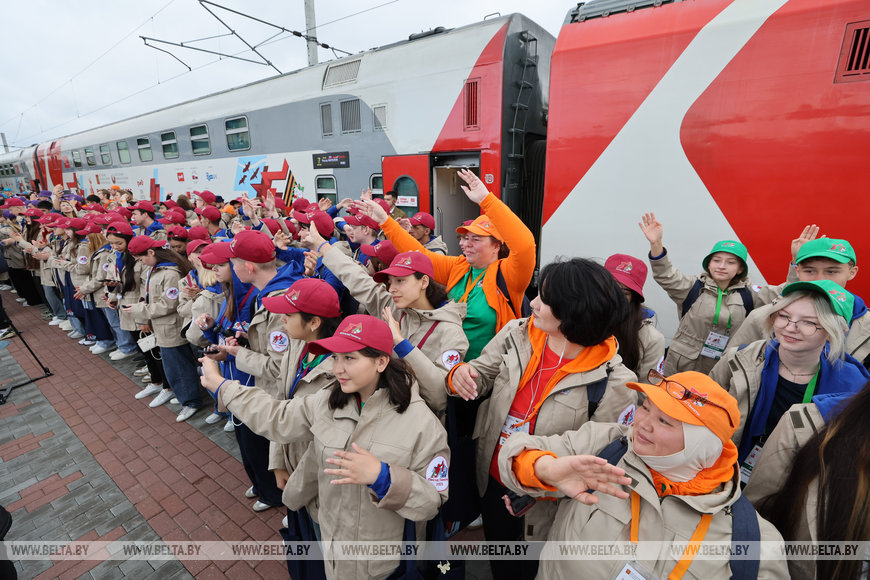
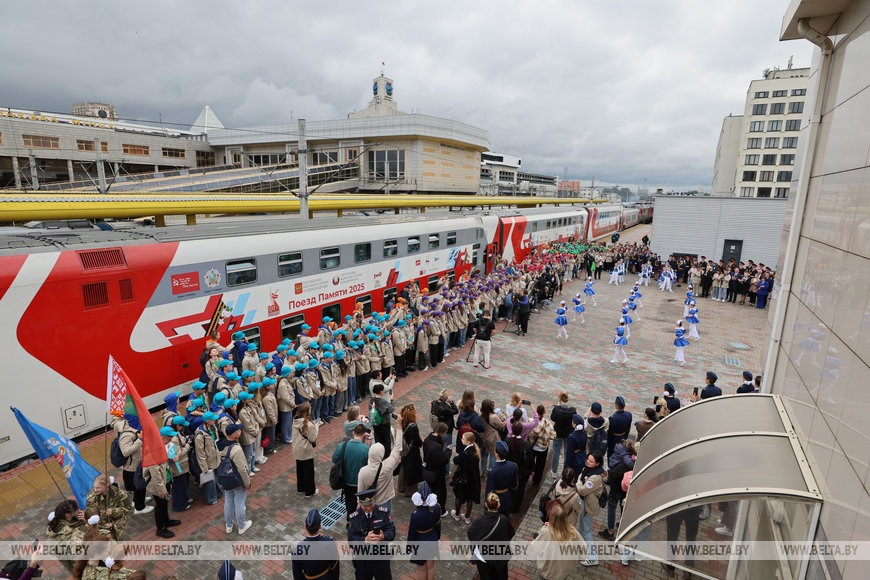
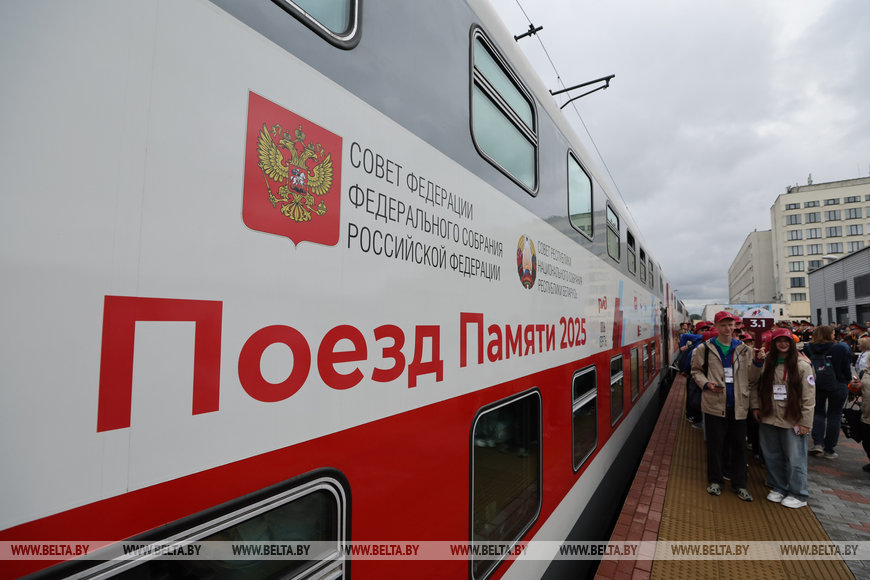
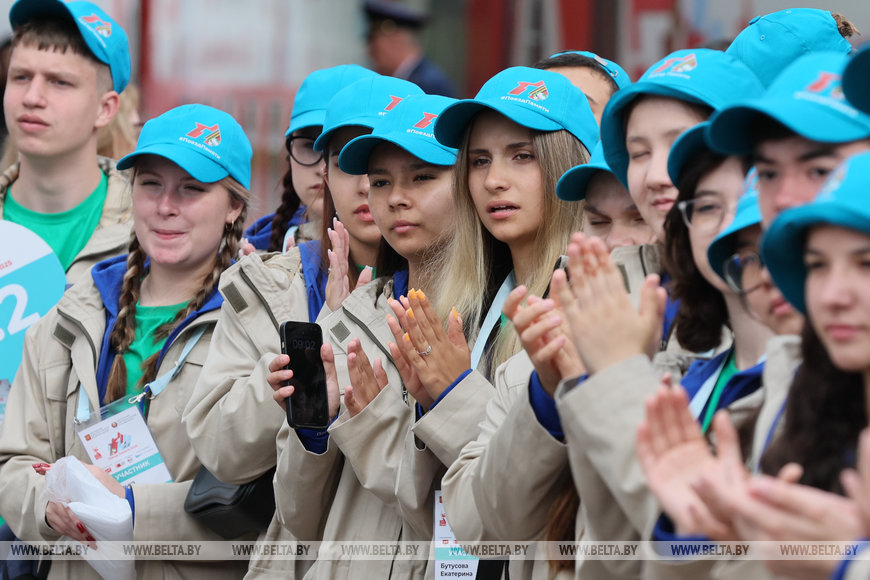
It carries 200 young people, descendants of the soldiers-victors, representatives of the nations of the former Soviet Union, who won the Victory over Nazism in 1945. For them this is not just a journey, but a symbol of the common history and continuity of generations. The first stop of the route was Brest, where guests got in touch with the glorious history of the hero city. Then it was Grodno, and now Minsk.


For Darya Kurmanskaya from Minsk this is a special route, because it gives an opportunity not only to connect with the history, but also to take a different look at her hometown. “The atmosphere on the train is wonderful, friendly,” Darya said. “We've all made friends, have a great time. Brest and Grodno are amazing cities. I am from Minsk, and it will be very interesting for me to look at my hometown with the eyes of a guest. I am sure that this will allow me to feel its special atmosphere and history even more. I only expect the best and the most beautiful from the journey.”
Brest left a special mark on the heart of the girl left. This is a hero city, a symbol of the indomitable will of the people during the war. “For me, it was a tremendously moving experience. There was an amazing commemorative concert, we laid flowers as a sign of our tribute and respect for our heroes. I believe that the Train of Memory is a unique opportunity to contribute to the preservation of historical memory. Respect for the past unites generations and nations,” Darya said.
She added that she made many new friends from Kazakhstan, Russia and Belarus. “We have all become very good friends. We have shared the stories and traditions of our countries,” she said. “And that's the most valuable thing about this trip. It is in this way that we create an understanding of the importance of friendship, peace and memory.”


The organizers note that the program is as rich and diverse as possible. It takes young people to the memorable places of military glory and culture and promotes their friendly communication. Every morning begins with a simple but touching gesture - greetings in native languages. Every day brings new meetings, communication and exchange of traditions. Boys and girls share stories about the customs and culture of their peoples. So the train turns into a moving bridge that connects not only cities, but also hearts, turning the history into a living memory for a new generation.





The Train of Memory is a unique interstate project implemented by Belarus and Russia for several years. Today Minsk is hosting the Train of Memory. The guys will explore our capital cities, go see the memorable places,” Minsk Vice Mayor Andrei Strigelsky said. “They will visit Khatyn near Minsk and also the National Library, the educational center of the Emergencies Ministry and other places connected with the heroic past of our hero city.”
According to Andrei Strigelsky, an important part of the program will be a commemorative rally and a ceremony of laying flowers at the Victory Monument.
The vice mayor stressed that the communication of young people from different countries is what makes the project special. “For the younger generation, communication is very important. Once we were part of the Soviet Union, and we really need to preserve the common memory – the memory of the Victory in the Great Patriotic War. The children pass it as they communicate and share their emotions and impressions. This is the main goal of the project - the preservation of historical memory for the future,” he added.




All passengers of the Train of Memory are winners of national competitions and selection rounds. In Belarus, it was the national contest “I am a patriot of my country” with more than 9,000 applicants. Russia had more than 9,400 applications and selected about 1,200 tenth-graders.




